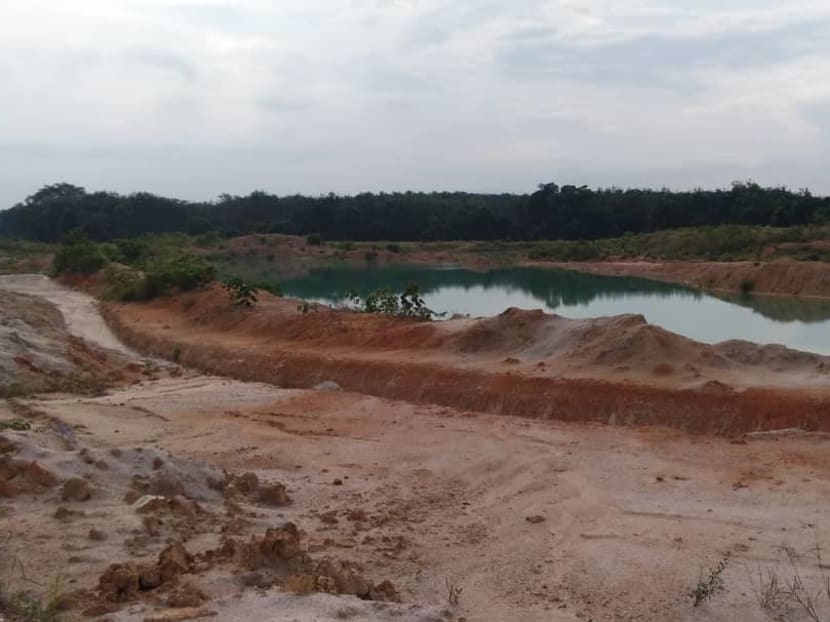Two rivers dry up in Johor, allegedly from sand-mining
KULAI (Malaysia) — Several Orang Asli villagers in Tenggara in the south-eastern part of Johor are pleading with the authorities to investigate two shrinking rivers near their homes, which they insist is due to unregulated sand-mining activities.
KULAI (Malaysia) — Several Orang Asli villagers in Tenggara in the south-eastern part of Johor are pleading with the authorities to investigate two shrinking rivers near their homes, which they insist is due to unregulated sand-mining activities.
Fisherman Azman Inam from Kampung Orang Asli Sayong Pinang said he and others from his village who depend on Sungai Linggiu and Sungai Sayong have been struggling to earn a living as the rivers dry up.
He added that villagers had earlier sought to bring the authorities’ attention to the problem.
“However, there is no concrete solution for us and the continued sand-mining activities have impacted our lives,” he told Malay Mail.
Malay Mail visited the area recently and saw several dried patches of land along Sungai Linggiu and Sungai Sayong that must have once been part of the rivers’ paths. Some other areas appeared to be covered in wild shrubs, suggesting a shrinking waterline.
Further checks showed the river water had receded and the land barren, with further signs of sand extraction in the area.
The Linggiu dam, which enables Singapore to reliably draw water from the Johor River, is located upstream of the affected Sungai Linggiu and Sungai Sayong areas.
Mr Azman said the Orang Asli community in the area were simple people who relied on the river to fish and natural resources to earn an income, which had been hit, as the waterways shrunk.
“My income had also declined from RM30 (S$9.91) per day to RM15 per day and the situation has caused me to seek extra work,” he said.
He added that the Orang Asli were not anti-development as some people might perceive, but wanted it to be sustainable.
He said the authorities need to monitor and control projects approved for development in the area, including sand-mining activity and ensure they do not interfere with nature.
“River reserves must be preserved and dredging activity should be controlled so as not to jeopardise the fish ecosystem in the river,” Mr Azman said.
Another villager, Mohd Salihin, 43, said the two rivers in the area had become increasingly polluted, which he suspects is caused by uncontrolled sand-mining activities there, some involving swathes of land up to 5km long.
“I found that there are more than 20 sand-mining projects in areas along the two rivers.
“From our monitoring, it is feared that the mining was not in accordance with standard operating procedures and also due to the issuance of questionable permits for the sand-miners,” he said.
Like Mr Azman, Mr Mohd said the rivers are drying up and the land around them is “dead” to the villagers as only prickly shrubs were flourishing there.
“The cause is due to the sand-mining that diverts the rivers’ passage and alters their water flow,” he said firmly.
Senggarang assemblyman Khairuddin Rahim also told Malay Mail the state government needs to look into the allegations of indiscriminate sand-mining in Tenggara.
“In fact, I have visited the area and I am aware of the 20 sand-mines there that the villagers claim are practising uncontrolled sand-mining activities,” the Pakatan Harapan backbencher said.
Mr Khairuddin shared the same concerns as the Orang Asli villagers that Malay Mail interviewed, saying it was imperative the state government look into their complaints.
He previously brought up the issue of illegal waste discharge due to livestock farming on the banks of Tenggara’s riverine area during the previous Johor state assembly.
A known environmental activist, Mr Khairuddin said the river flow in Sungai Linggiu was impacted and had affected the area’s ecosystem, lending credence to the villagers’ suspicions and fears of their livelihood being at risk. MALAY MAIL







